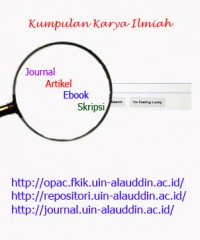Detail Cantuman

Text
Serum magnesium and the risk of prediabetes: a population-based cohort study
Abstract Aims/hypothesis Previous studies have found an association between serum magnesium and incident diabetes; however, this association may be due to reverse causation, whereby diabetes may induce urinary magnesium loss. In contrast, in prediabetes (defined as impaired fasting glucose), serum glucose levels are below the threshold for urinary magnesium wasting and, hence, unlikely to influence serum magnesium levels. Thus, to study the directionality of the association betweenserummagnesiumlevelsanddiabetes,weinvestigated its association with prediabetes. We also investigated whether magnesium-regulating genes influence diabetes risk through serummagnesiumlevels.Additionally,wequantifiedtheeffect of insulin resistance in the association between serum magnesium levels and diabetes risk. Methods Within the population-based Rotterdam Study, we used Cox models, adjusted for age, sex, lifestyle factors, comorbidities, kidney function, serum levels of electrolytes and diuretic use, to study the association between serum magnesium and prediabetes/diabetes. In addition, we performed two mediation analyses: (1) to study if common genetic variation in eight magnesium-regulating genes influence diabetes risk through serum magnesium levels; and (2) to quantify the proportion of the effect of serum magnesiumlevelsondiabetesthatismediatedthroughinsulin resistance (quantified by HOMA-IR). Results A total of 8555 participants (mean age, 64.7 years; median follow-up, 5.7 years) with normal glucose levels (mean±SD: 5.46±0.58 mmol/l) at baseline were included. A0.1mmol/ldecreaseinserummagnesiumlevelwasassociated with an increase in diabetes risk (HR 1.18 [95% CI 1.04, 1.33]), confirmingfindingsfrompreviousstudies.Ofinterest, a similar association was found between serum magnesium levels and prediabetes risk (HR 1.12 [95% CI 1.01, 1.25]). Genetic variation in CLDN19, CNNM2, FXYD2, SLC41A2, and TRPM6 significantly influenced diabetes risk (p
Ketersediaan
Tidak ada salinan data
Informasi Detil
| Judul Seri |
-
|
|---|---|
| No. Panggil |
artikel
|
| Penerbit | Springer : USA., 2017 |
| Deskripsi Fisik |
-
|
| Bahasa |
English
|
| ISBN/ISSN |
DOI 10.1007/s00125-0
|
| Klasifikasi |
NONE
|
| Tipe Isi |
-
|
| Tipe Media |
-
|
| Tipe Pembawa |
-
|
| Edisi |
Diabetologia (2017) 60:843–853
|
| Subyek | |
| Info Detil Spesifik |
-
|
| Pernyataan Tanggungjawab |
-
|
Versi lain/terkait
Tidak tersedia versi lain
Lampiran Berkas
Informasi
DETAIL CANTUMAN
Kembali ke sebelumnyaXML DetailCite this

Perpustakaan Fakultas Kedokteran dan Ilmu Kesehatan
Lorem ipsum dolor sit amet, consectetur adipiscing elit. Duis nec cursus mauris. Nullam vel nunc quis ipsum laoreet interdum. Maecenas aliquet nec velit in consequat.
Info selengkapnya







